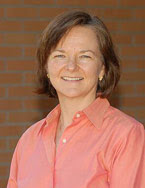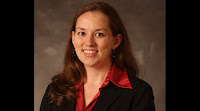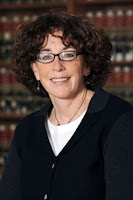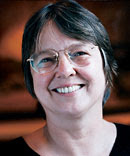My earlier post on the recent poll on same-sex marriage got me thinking. I decided to do a little digging to see how the issue of denying same-sex couples access to marriage has been phrased and particularly whether the word “illegal” has been used to describe same-sex marriage in states that do not legally recognize same-sex relationships. In particular, I took a quick look back to see how people spoke of the wave of marriage licenses that were issued in San Francisco, Oregon, and New York in 2004 as well as of Mitt Romney’s decision to enforce a 1913 law prohibiting marriages in Massachusetts by out-of-state couples if their home state would not permit the marriage.
Here are some excerpts from news reports of these events:
Mr. Romney’s actions are based on his interpretation of a 1913 law which says that the state cannot issue marriage licenses to couples if the marriage would be illegal in their home state. Mr. Romney has concluded that because no other state allows gay marriage, only Massachusetts residents, or people who intend to move to the state, can receive marriage licenses.
(emphasis added; from the New York Times)
In New York, the mayor of New Paltz, Jason West, solemnized the weddings of about 25 same-sex couples, even though the state health department refused to grant them marriage licenses. Mr. West postponed a second round of weddings after the state’s attorney general, Eliot Spitzer, issued a legal opinion saying that gay marriage is illegal, but that the state’s marriage laws raised ”serious constitutional concerns.”
(emphasis added; from the New York Times)
Lockyer posted a statement on his Web site saying that it was “the duty of my office to defend that law against this challenge by the City and County of San Francisco, and allow the courts to determine whether the city has acted illegally.”
(emphasis added; from CNN)
In town, West waves and is glad-handed by restaurant owners and shopkeepers, who have gotten over their initial fears that he might ban capitalism — and he is now even semi-memorialized: on the day in early March when he was ordered to appear in court on charges of illegally marrying gay couples, the Gilded Otter, the local brewery, was selling Get Out of Jail Ale.
(emphasis added; from the New York Times)
All sides in the debate expect to appeal portions of the ruling, which is expected to land in front of the Oregon Supreme Court.
In the motion filed Thursday, state officials are asking Bearden to allow them to hold off on recording marriages that eventually may be determined illegal.
(emphasis added; from the Portland Oregonian, May 7, 2004)
Multnomah County is continuing to issue licenses to same-sex couples. The county took that step on the advice of its county counsel and before Myers’ opinion that said same-sex marriages are illegal under state law and that banning such unions is probably unconstitutional.
(emphasis added; from the Portland Oregonian, March 24, 2004)
Newsom’s attempt to turn San Francisco into a test case on the issue came two days before a scheduled rally in the city by gay marriage advocates and three days before Assemblyman Mark Leno (D-San Francisco) plans to introduce legislation that would legalize gay marriage in California. Gay rights advocates applauded Newsom’s directive, which appeared to position San Francisco as the first local government to move forward on the issue without a state mandate.
* * * *
Opponents of gay marriage called the plan illegal and politically unwise outside the liberal bubble of the Bay Area.
(emphasis added; from the Los Angeles Times, Feb. 11, 2004)
And here are some from opponents of same-sex marriage:
A national legal organization has scheduled a news conference for 3 p.m. Friday to announce a lawsuit against San Francisco and certain city officials for violating state law and allowing the “marriage” of same-sex couples in illegal ceremonies on Thursday.
(emphasis added; Alliance Defense Fund)
A California state judge entered a cease and desist order today against the mayor, the county clerk, and San Francisco to stop issuing illegal “marriage” licenses to same-sex couples.
(emphasis added; Alliance Defense Fund)
ADF attorney Robert Tyler, also representing petitioners in this original action, said his clients support state law and believe it is wrong for the clerk to violate the law. “We’re seeking an order to direct the clerk to comply with the state constitution and California law as it stands and to stop issuing illegal marriage licenses. These licenses do not comply with state law and are not valid or legal.”
(emphasis added; Alliance Defense Fund)
Mathew Staver, President and General Counsel of Liberty Counsel, stated, “Mayor Newsom has lost his mind. The Mayor obviously believes he is above the law. In 2000, the people of California overwhelmingly passed Proposition 22, which limits marriage to one man and one woman. Government officials, including even the Mayor of San Francisco, must obey the law. We are a nation ruled by law, not by power hungry, renegade, radical activists.” Staver continued, “Newsom’s letter is the latest attempt to advance his radical gay agenda. What Mayor Newsom did is reprehensible and illegal. Such blatant disregard for the will of the people of California cannot go unpunished. We are confident that the Court will rein in this out-of-control Mayor.”
(emphasis added; Liberty Counsel)
Mayors are no longer issuing symbolic same-sex marriage licenses. When San Francisco Mayor Gavin Newsom began doing so, we sued him. We then sued New Paltz, New York, Mayor Jason West when he followed Newsom’s example. Now both mayors have court orders barring their illegal activity.
(emphasis added; Liberty Counsel)
So much for claiming that the framing of that poll question skewed the responses.
-Tony Infanti
 From Stetson’s press release (here):
From Stetson’s press release (here):

 Some students at Reed College are planning a “Feminist Bake Sale for Pay Equity.” Here are the details:
Some students at Reed College are planning a “Feminist Bake Sale for Pay Equity.” Here are the details: NYU Press has published Feminist Legal History: Essays on Women and Law, edited by Tracy A. Thomas (Law, Akron) and Tracey Jean Boisseau (History, Akron).
NYU Press has published Feminist Legal History: Essays on Women and Law, edited by Tracy A. Thomas (Law, Akron) and Tracey Jean Boisseau (History, Akron).














 The NYT has the story
The NYT has the story 
 Members of the LL.M. Class of 2011 at the University of Pennsylvania Law School have joined with students from
Members of the LL.M. Class of 2011 at the University of Pennsylvania Law School have joined with students from 
 Barbara Black, the Charles Hartsock Professor of Law and Director of the Corporate Law Center at the University of Cincinnati College of Law has posted to SSRN her essay,
Barbara Black, the Charles Hartsock Professor of Law and Director of the Corporate Law Center at the University of Cincinnati College of Law has posted to SSRN her essay, 
 Miraisy Rodriguez (far left) and Farrah Elchahal (left), two great students in Professor Caroline Bettinger Lopez’s Human Rights Clinic at the University of Miami, published
Miraisy Rodriguez (far left) and Farrah Elchahal (left), two great students in Professor Caroline Bettinger Lopez’s Human Rights Clinic at the University of Miami, published